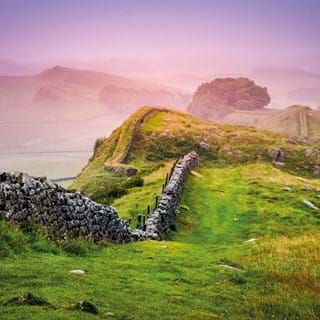
Bulgaria
Bulgaria is a Balkan nation with a stunning, diverse terrain that encompasses the Black Sea coastline, boasts a mountainous interior, and has great rivers – including the Danube. It is a real cultural mix with Greek, Slavic, Ottoman, and Persian influences, and the country has a rich heritage of traditional dance, music, costumes, and crafts. Its capital city, Sofia, dating to the 5th century BC, sits at the foot of Vitosha mountain.
Bulgarian ancient history begins with the Thracians. The Thracians were a group of Indo-European tribes that lived throughout the Balkan Peninsula from about 1000 BC. They lived simply in small, fortified hilltop villages, but had an advanced cultural life. Many elaborate gold and silver treasures have been found in Bulgaria, and you can still admire some of their burial tombs today. From 200 BC, the Romans became the main power in Europe. By 50 AD, all the Thracian tribes were obliterated and the Romans had created the provinces of Thrace in the South and Moesia in the North. However, by 1400 the Ottoman Turks had become a disciplined war machine with superior numbers, and were unstoppable. By the middle of the 15th century, south-eastern Europe was part of the Ottoman Empire, a situation that would last for 500 years. By the end of the 18th century, Turkish rule became more tolerant, and a group of wealthy Bulgarian merchants got more and more freedom. In the present, Bulgaria has a turbulent and diverse history of revolution and instability. Its economy is growing steadily and tourism is increasing rapidly, due to Bulgaria’s beautiful architecture, rich history and beaches.
Upcoming Departures
Visa:
UK: Not required for a stay of up to 3 months in duration.
USA: Not required for a stay of up to 90 days in duration.
Currency:
Bulgarian Lev.
Packing advice:
Packing for a trip to Bulgaria is generally similar to packing for many European destinations. Lightweight clothing should be worn in the summer on the coast and in low inland areas. Warmer clothes are needed in winter and throughout the year in the uplands. Rainwear is recommended throughout the year, especially in the autumn.
Cultural differences:
Bulgarians are very proud of their culture and heritage. Stories and folklore still form an important part of life where legends and traditions and are passed between the generations. These are also captured in poetic songs, rituals, music, dance, costumes and jewellery. In Bulgaria, respect and honour is given to people with age and position. Bulgaria, on the face of it, is still a fairly formal society - initial greetings are therefore somewhat reserved.
Language:
Bulgarian.
Tipping:
In restaurants and bars, it is common to tip the staff about 10% of the total bill, but never less than 5% as service staff in Bulgaria generally depend on tips to boost their salaries. Andante Travels will take care of gratuities to restaurant staff, local guides and drivers.
 US
US
 GB
GB



